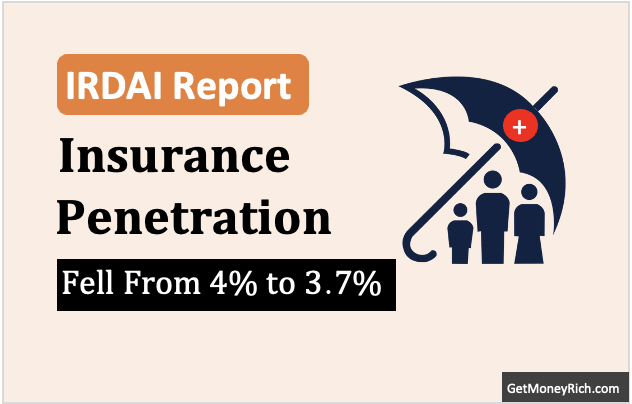Summary Points:
- EVs like Tata Nexon EV are popping up across India, but their insurance is pricey.
- The battery of EVs are about 60% of thei cost whose life starts to fade away after 8 years.
- Repairs are in EVs are also expensive. Replacing the batter after damage can cost a lot. Spare parts and service skills are rare for now.
- Depreciation also hits hard; a Rs.14 lakh EV might fetch just Rs.7 lakh in a few years.
- Hybrids feel safer with lower costs and better resale, making EVs a tough sell for now.
Introduction
Electric vehicles (EVs), here in India, we’re seeing more of them on the roads. Likes of Tata Nexon EV, MG ZS EV, and more ones like fancy Teslas & BYDs are now popping up in big cities like Mumbai and Bangalore. But the other day, my cousin Rohan, who’s been eyeing an EV for his daily commute, asked me a question related to EV. He asked, “why is insurance for these electric cars so expensive? Isn’t it supposed to be cheaper since there’s no engine to fuss about?” Honestly, I didn’t have a solid answer then, but now I do. I decided to dig more into and I though why not share my finding with my readers too.
Sometime back I wrong a post on the economics of driving an Electric Vehicle (EV). It has an interesting conclusion, I’ll suggest you to read it. So, the basic fact that my blog post also covered was, EVs are expensive cars than ICE engine cars. But now it is emerging that they also come with a hidden price tag. One sure cost is tied to their batteries and how they lose value over time. And the second is also linked to the battery life, and that’s exactly what make insurance companies more unsure about EVs.
EV Batteries & Its Concerns
Imagine you are buy a shiny new EV for, say, Rs.15 lakh.
Out of that, almost Rs.8 lakhs, sometimes even more, is just the cost of its battery.
The battery is the heart of the car, and it’s a pricey one. Unlike our old Maruti 800s or Hero bikes, where the engine was just one part of the deal, in an EV, the battery is the star of the show. It’s what makes the car run, and it’s what costs a bomb to replace.
To make things more complicated, these batteries don’t last very long.
Most companies, like Tata or MG, promise their EV batteries will work well for about 8 years or 1.5 lakh kilometers. After that, the battery’s power starts to fade. It might still run, but you’re not getting that full 300-400 km range anymore. It may work, but its range will be limited to say 150 Km, not more.
For someone, who drives frequently say from from Pune to Mumbai, that’s a big drop. And when the battery weakens, the car’s value drops too. Imagine trying to sell a five-year-old EV with a half-dead battery? What do you think, would you get even 60% of what you will get for a 8 year old ICE car?
This is where insurance companies are not comfortable with EVs.
With a petrol or diesel car, they know how the engine wears out, slowly, predictably. But EV batteries, they are still new and with the present set of available data, not body is sure how a 8 year old EV will behave. Experts say, some EVs may last longer if you charge them smartly. Other say, they will die faster if you’re always fast-charging at those roadside stations.
So, on one side we are still searching for answers about EV, on the other side our car insurance providers are looking at the same question but from a different angle. When they’re figuring out how much to charge you for insurance, or how much to pay if your car meets a major accident, they’re dealing with a bit of a gamble.
Why Repairs Cost Are So High?
Let’s say you’re driving your EV down NH48, and someone hits your car from behind.
With a regular car, you’d take it to your local mechanic, fix the bumper, maybe tweak the engine, and you’re good to go. But with an EV? It’s not that simple.
If the battery gets damaged, it’s a big and heavy thing sitting under the car, the repair bill could ber very high. Replacing a battery can cost anywhere from Rs.5 lakh to Rs.15 lakh, depending on the model. That’s more than the price of a brand-new Hyundai Creta sometimes.
Moreover, not every garage in India knows how to fix an EV.
In a small town, I’d bet there’s maybe one guy who’s trained to handle electric cars, and he’s probably charging a premium for it.
Insurance companies know this. They’ve seen the data, repair costs for EVs are higher because the parts are expensive, and the labor isn’t cheap either.
A 2023 study I came across said collision claims for EVs can be 20-30% pricier than for regular cars. So, naturally, they pass some of that cost onto us through higher premiums.
Depreciation Factor
Now, let’s talk about something we all care a lot about, resale value.
We love our cars. But we also love knowing we can sell them later and get something back.
With petrol and diesel cars, the value drops steadily, maybe 10-15% a year if you maintain it well. But with EVs, the price fall is much steeper. Why?
Because so much of the car’s worth is tied to the battery. Once the battery starts to lose its juice, buyers will hesitate to buy a second had EV.
Who wants to pay so much to buy an EV that might might fetch only peanuts after 7-8 years?
I read somewhere that a three-year-old Tesla Model 3 in the U.S. can lose 30-40% of its value. It is way more than a similar petrol sedan. Here in India, it’s not much different. A used Tata Nexon EV from 2021 might fetch you about Rs.7 lakh, down from Rs.14 lakh when new.
Compare that to a petrol Creta, and you’ll see the gap.
Insurance companies factor this in too. If your EV gets written off in an accident, they’re not paying you based on what you think it’s worth, they’re looking at that depreciated market value. And that’s another reason your premium feels heavy.
They’re covering a car that’s costly to fix but loses value fast.
Hybrids Have Behind The Scheme Effect on EV
This whole EV insurance complication is why some of us, swear by hybrids.
There is a friend of mine who drives a Toyota Innova (Hybrid). She’s loves getting that great mileage (about 23 Km per ltr) without worrying about the dying battery. Her car has a smaller battery (than EV), backed up by a petrol engine, so the stakes are not as high. If the battery fades, the car still runs fine on fuel. Plus, repairs are cheaper, and the resale value holds up better.
No wonder hybrids are outselling EVs in places like India and the U.S. right now. People who are thinking ahead, 7-8 years from now, are still buying Hybrids over EV.
Think about it, on one side ICE cars are not going anywhere any time soon. Then the concept of Hybrid is also building. So I’ll speculate, in the minds of the insurance providers, they are not so bent to bring the premium of EVs with ICE or even hybrids.
For a buyer like me, EV buying is tempting. But I also see the petrol rates crossing Rs.100 per litre. And when I think about the added costs insurance premium and battery replacement cost, I give it a pause. On top of that, what will I get when I’ll sell it say 8 years from now? I’m not sure.
In this backdrop, I do not see premiums of EV coming down anytime soon.
What’s The Future of EVs
I’m not against EVs, and I also know that the things are changing fast,
Battery tech is getting better, there’s talk of solid-state batteries that could last longer and cost less, maybe in the next 5-10 years. Companies like Tata are also working on recycling old batteries, which could bring down replacement prices. And as more EVs hit Indian roads, insurance companies will get better at pricing them. How? Because more data means less guesswork.
But right now, we’re in a kind of awkward phase. EVs are exciting, no doubt, cleaner air, quieter streets, good looks etc. But looking at EVs from the economics side, it does not motivate me to buy it soon. Personally, I prefer a hybrid (now).
Higher insurance premiums, unsure repair costs, and that low resale value, they’re real hurdles for any EV buyers.
What do you think about EV? Tell me in the comment section below.
Have a happy investing.



Interesting take! I didn’t realize how much the battery costs impact both the purchase and insurance of an EV. Makes sense now why insurance rates are pretty high for electric vehicles. Given all the risks associated with battery life and depreciation you mentioned, do you think insurance premiums might drop as technology improves and parts become more available? Also, for those of us planning trips or car purchases, I stumbled upon a site, https://world-prices.com. Perhaps it can give a snapshot of current price trends, although I’m not too sure how accurate it is. Thanks for the insights, really cleared up my confusion!